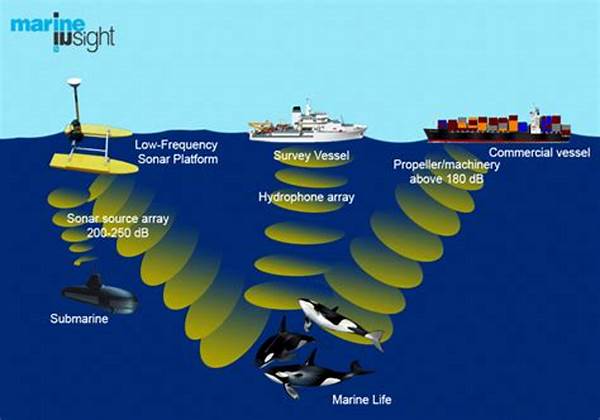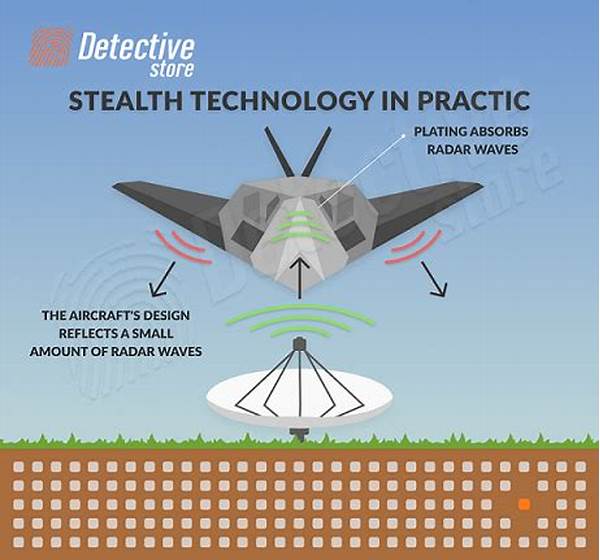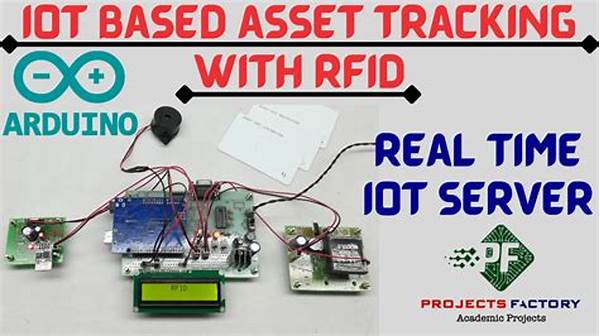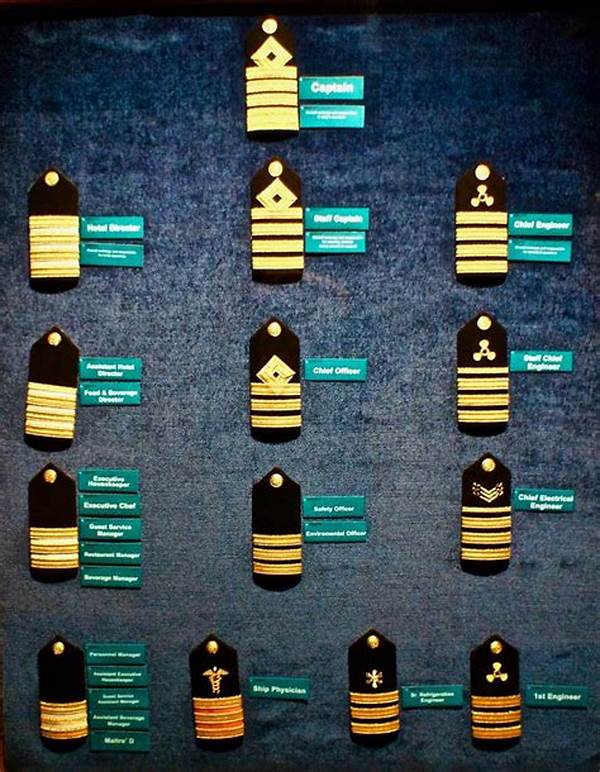In the vast expanse of oceans, marine vessel noise control has emerged as a critical area of focus. While the rhythmic lapping of waves provides a soothing backdrop to sailors, the incessant hum of engines and machinery from marine vessels disrupts the tranquility of the seas. The consequences of unchecked noise pollution pose a substantial threat to marine life and require immediate intervention. In this article, we dive deep into the nuances of marine vessel noise control and explore ways to mitigate its impact.
Read Now : High-strength Lightweight Materials
The Importance of Noise Control in Marine Vessels
Alright, let’s dive into why controlling noise in marine vessels is a big deal. Picture it: you’re a dolphin or a whale navigating the ocean depths. Out of nowhere, a massive vessel zooms by, causing a ruckus with its engines blaring. This isn’t just a minor inconvenience; it’s like having a rock concert blasting in your ear 24/7. Marine vessel noise control is super important because it’s about ensuring our sea friends can communicate, find their way around, and hunt without constant noise interruption. Without effective marine vessel noise control, the delicate ocean ecosystem could experience significant disruptions, leading to dire consequences for marine biodiversity.
Strategies to Curb Noise Pollution
1. Vessel Design Tweaks: New designs can make ships quieter. Manufacturers are figuring out ways to hush those engine roars. Marine vessel noise control starts with smart design.
2. Speed Tricks: Slowing down ships can seriously cut back on noise. Less speed means less racket – it’s a no-brainer for marine vessel noise control.
3. Tech Gear: Using high-tech gadgets to measure noise levels helps tweak what needs fixing. Tech’s got a big role in marine vessel noise control.
4. Propeller Fixes: Changing how propellers work can make a world of difference. Better propellers mean less noise – clear win for marine vessel noise control.
5. Regular Check-Ups: Frequent maintenance keeps noise levels in check. Tune-ups equal quiet sails in the world of marine vessel noise control.
Cutting-edge Tech in Noise Control
Marine vessel noise control is getting a tech makeover. Think acoustic dampening materials, which are like invisibility cloaks for sound. They’re being plastered all over ship hulls to mute the sound before it hits the water. Then there’s sonar mapping. This baby lets us pinpoint where noise is bouncing around so we can find ways to hush it. Marine vessel noise control isn’t complete without AI – computers now predict the noisiest parts of the journey and suggest alternate routes. All these tools are shaking up the game, ensuring a quieter ocean for everyone involved.
Read Now : Efficient Naval Targeting Algorithms
The Role of Regulations
Okay, let’s talk about the powers-that-be in marine vessel noise control. Governments and international bodies ain’t sitting idle; they’re drafting rules to limit underwater noise. It’s like setting a bedtime curfew for noisy engines. These laws push vessel owners to be more responsible about their noise footprint. Marine vessel noise control is slowly becoming a key part of sustainable maritime regulations, ensuring our seas remain serene for years to come. The aim is to harmonize shipping industry practices with environmental standards in a way that significantly reduces underwater noise pollution.
Impact on Marine Life
Now, why should we care? Marine vessel noise control is crucial because our finned and flippered pals in the sea can’t just plug their ears or turn down the volume. Constant noise messes with their navigation and comms. Whales, for instance, rely on sound to chat and navigate. Blasting engines muddle up their signals – it’s like trying to have a convo at a deafening nightclub. Marine vessel noise control helps give these creatures back their peace and quiet, keeping the open seas as it should be, serene and harmonious, not a chaotic cacophony.
Challenges in Implementing Noise Control
Hooking up marine vessel noise control isn’t exactly a walk in the park. Big shipping companies might groan about the cost of adding new tech or redoing ship designs. Then there’s getting everyone on the same page – you can’t exactly police the open ocean, right? Different countries have different rules, making uniform marine vessel noise control a bit of a puzzle. But with perseverance and collaboration, these challenges can be overcome to achieve a peaceful ocean environment. As awareness grows, the incentive for businesses to invest in noise-reducing technology increases.
Summary of Marine Vessel Noise Control
So, here’s the lowdown: marine vessel noise control is all about keeping the seas chill. As ships plow through the ocean, their noisy engines are like party-crashers in the marine world. Our mission is to turn down the volume so dolphins, whales, and other ocean critters can vibe in peace. Achieving effective marine vessel noise control means adopting new tech, smarter ship designs, and tighter regulations to manage noise pollution.
In a nutshell, marine vessel noise control isn’t just a fad – it’s a necessity for protecting marine life from the onslaught of sound pollution. By implementing control strategies, using cutting-edge technologies, and introducing stricter regulations, we aim to turn these sound machines into smooth operators, ensuring our oceans remain a haven for all its inhabitants. The open seas are not just for vessels alone; they are a shared habitat, requiring respect and consideration for marine life’s well-being.




